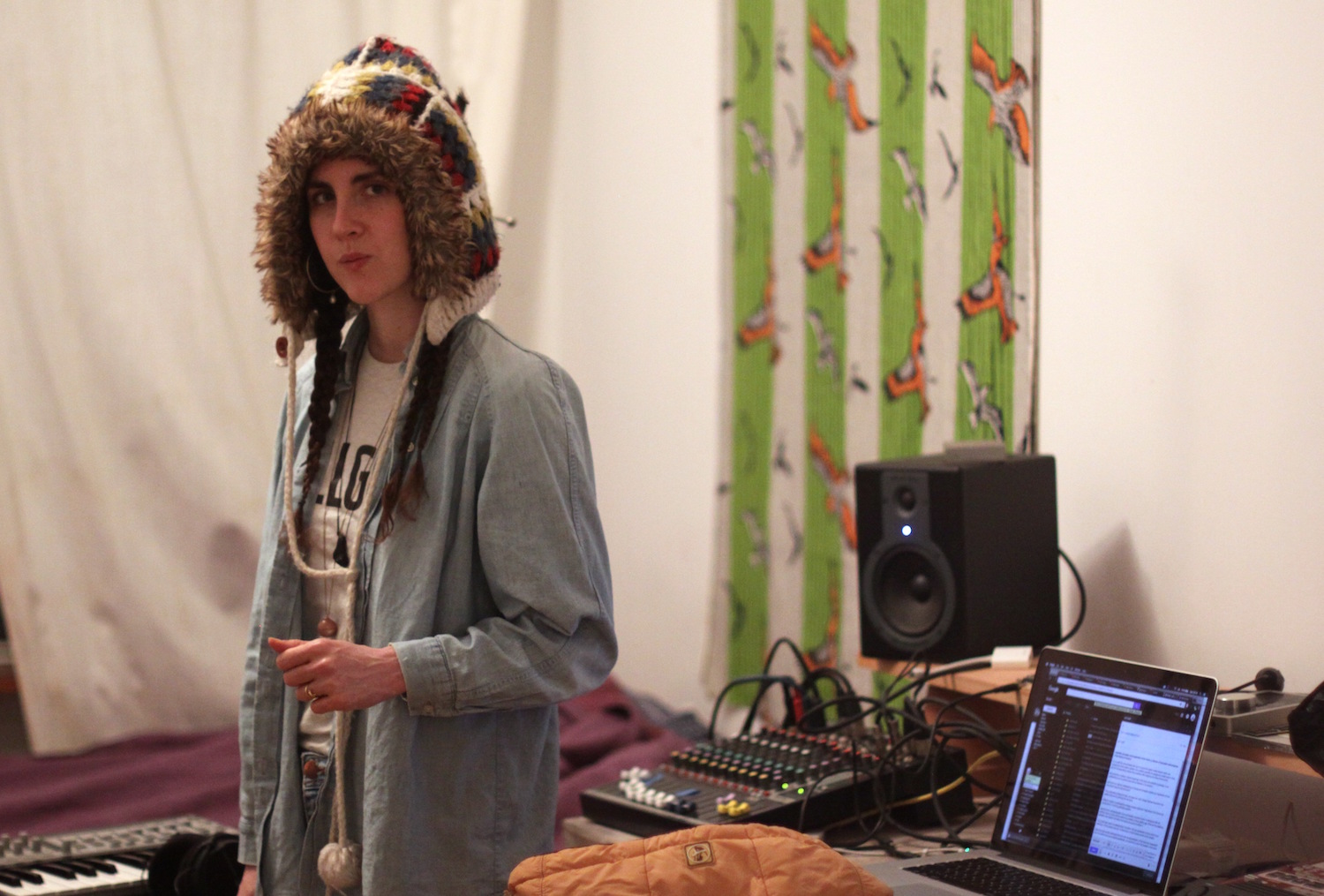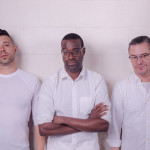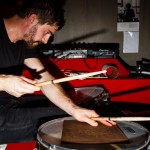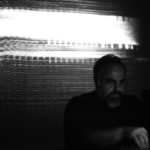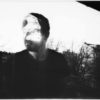“Since I was 4 or 5,” explains Ohal Grietzer, “there’s never been a moment in my life that wasn’t dedicated to music. It’s almost an obsessive state of mind of constantly thinking about it, just being haunted by it. For a long time, it wasn’t a project-driven effort; it was practice, something I did every day. And at some point, it opened to this very strong realization that I now want to craft this long-form unit that encompasses all of the things I’d realized about music, all of the things that are important to me…. not just fragmented moments of a song here or an experiment there.”
The result is this week’s mesmerizing Acid Park album, a long overdue solo LP from the Brooklyn musician after more than a decade of working alongside such close friends as Tyondai Braxton and TV on the Radio’s Kyp Malone and Tunde Adebimpe. The latter returned the favor on Acid Park, mixing the effort alongside Matty Green at Dave Sitek’s Federal Prism studio.
In the following exclusive, we bring Grietzer and Adebimpe together for a free-wheeling conversation that tackles everything from how they met 15 years ago to why they’ll never agree about X-Men…
You guys are really old friends right?
Ohal Grietzer: Yes, since 2001—more than a decade ago.
Tunde Adebimpe: Almost 15 years? That’s crazy.
How did you meet?
Ohal: Good old Reel Life right?
Tunde: Yeah, there was an excellent video store called Reel Life. Everyone in the neighborhood who couldn’t afford to rent a movie for a night borrowed videos from Reel Life for two months at a time because all of our friends worked there. It was a nice, weird little hub. Actually, the very first time I met you was when Ty Braxton and a bunch of our other random musician friends came wandering out of what is now known as the Williamsburg Mini Mall…. I don’t know. This is easily one of my longest and favorite friendships [laughs].
Ohal: Likewise. I think we traded some music for comic books.
Tunde: Oh yeah, I gave you this comic that I’d made, and Ohal gave me a CD-R she’d burned of her songs…. Back in the day, we had these things called Discmans. They were like cheeseburger buns for a CD. So I threw that in and went for a walk. It was maybe 10 songs, and I pretty much had it on loop for two or three hours. I just wandered off into the part of Williamsburg where there was still feral dogs. So yeah, we’ve basically just been friends since then.
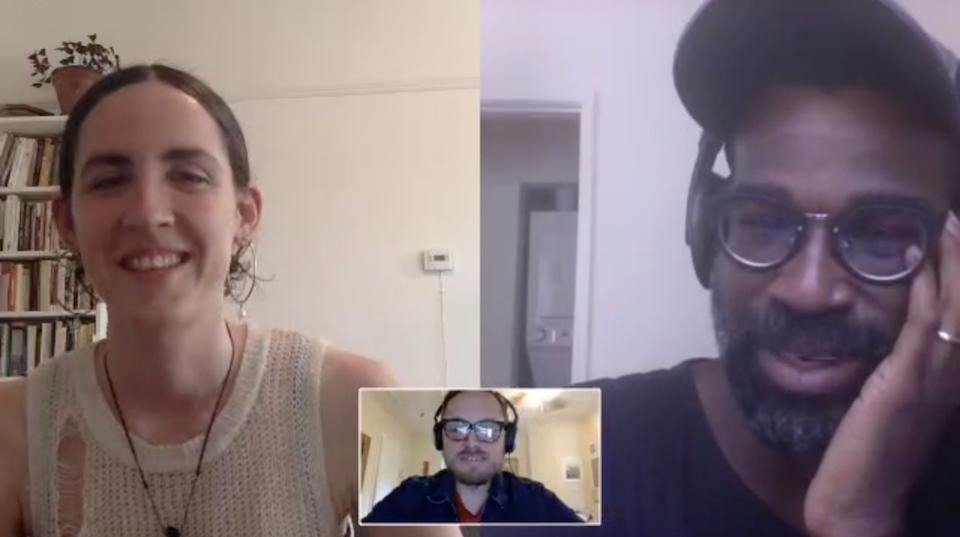
How was what she was making then different than what she’s making now?
Ohal: I think it was different.
Tunde: It was different?
Ohal: Yeah, it was very singer-songwriter-y. I think the instrumentation was piano, and Kevin Shea was playing drums, and there was a trumpet.
Tunde: It was orchestral pop sort of stuff. But you know, when all of your friends are giving you their four-track recordings and it’s like your friend hitting a guitar with a drum stick louder and louder through distortion, you’re like, ‘Thanks dude! I appreciate it. I’ll totally listen to it again.’ But then somebody gives you something where you’re like ‘this person is incredibly cultured musically and has a real ear for beauty.’ That’s not all of our friends, you know?
So you didn’t have to lie to her that you liked it?
Tunde: Oh no, it was so nice to not have to do that [laughs].
This was literally 15 years ago too?
Tunde: Yeah, this is probably a month after we met.
Why do you think it took so many years for a record like this to come out then?
Tunde: Well, we’ve worked on other stuff together.
Nothing this full-on though right?
Tunde: Well she asked if I wanted to mix the record together, and I said, ‘Yeah, of course. Absolutely.’ When I love what someone is doing, I probably won’t be able to do anything but sit here and nod, saying, ‘That’s excellent.’
You didn’t have to mess with much then?
Tunde: What would you say? It’s strange to think of it in terms of messing around.
Ohal: For a while we were sharing the same studio, when Tunde was still living in Brooklyn. So I recorded a lot of it in my apartment and then I relocated to this studio. You would be working there, animating or painting, and a significant portion of working on the album happened when you were present. I was constantly sending you versions of it before we mixed it together for two weeks in LA. And that was a very similar process of bouncing ideas back and forth, finding the tension in each song.
Tunde: It’s the best thing in the world to have another pair of ears you trust. It can be a very intimidating thing too. Sometimes my friends are the last people I play things for because there opinion counts so much to me. Your friends hold you to a totally weird standard. So much of my taste is informed by my friends’ ears. It’s not to be able to be around somebody, tap them on the shoulder, and just be like, ‘Am I tripping? Is this great or the dumbest thing you’ve ever heard in your life?’ It’s nice when they can give you an honest opinion about you tripping and it being very dumb.
It’s interesting because a lot of the interviews you did leading up until this made it sound like such an isolated creative process.
Ohal: Sure. A big part of it was being in this apartment, day in and day out, alone. And then at the end of the day, I might have emailed Tunde a version of a songI just did. There was months and months of isolation, but then it was great to share this other space with this person I love and appreciate so much. It’s not something I’d do with just anyone. I usually can’t even practice when there’s someone else in the room. But this was in the context of our friendship. There’s some people you can be with where it’s almost like being alone. It’s not a rude thing; you’re just comfortable enough to coexist in the same space.
Tunde: Knowing that you’re doing your shit [laughs]. I remember when you started and it was months of ‘I’m working on this’. But then everybody gets busy with their life and she sends me like eight songs. They were so there—so present. It hung as a record, a journey with twists. It’s nice when you get a big package all at once and you’re like, ‘What the fuck is this? Where did this come from? What have you been doing?’
Did you want to just shake her and say, ‘What took you so long?’
Tunde: I’m not even going to get into that [laughs]. That’s been my argument for going on 14 years. ‘What the fuck!’ So I can’t tell you how psyched I am. [To Ohal] Are you sending me a record?
Ohal: Yeah!
Ohal: That’s why I asked for your address.
Tunde: I think I deserve one.
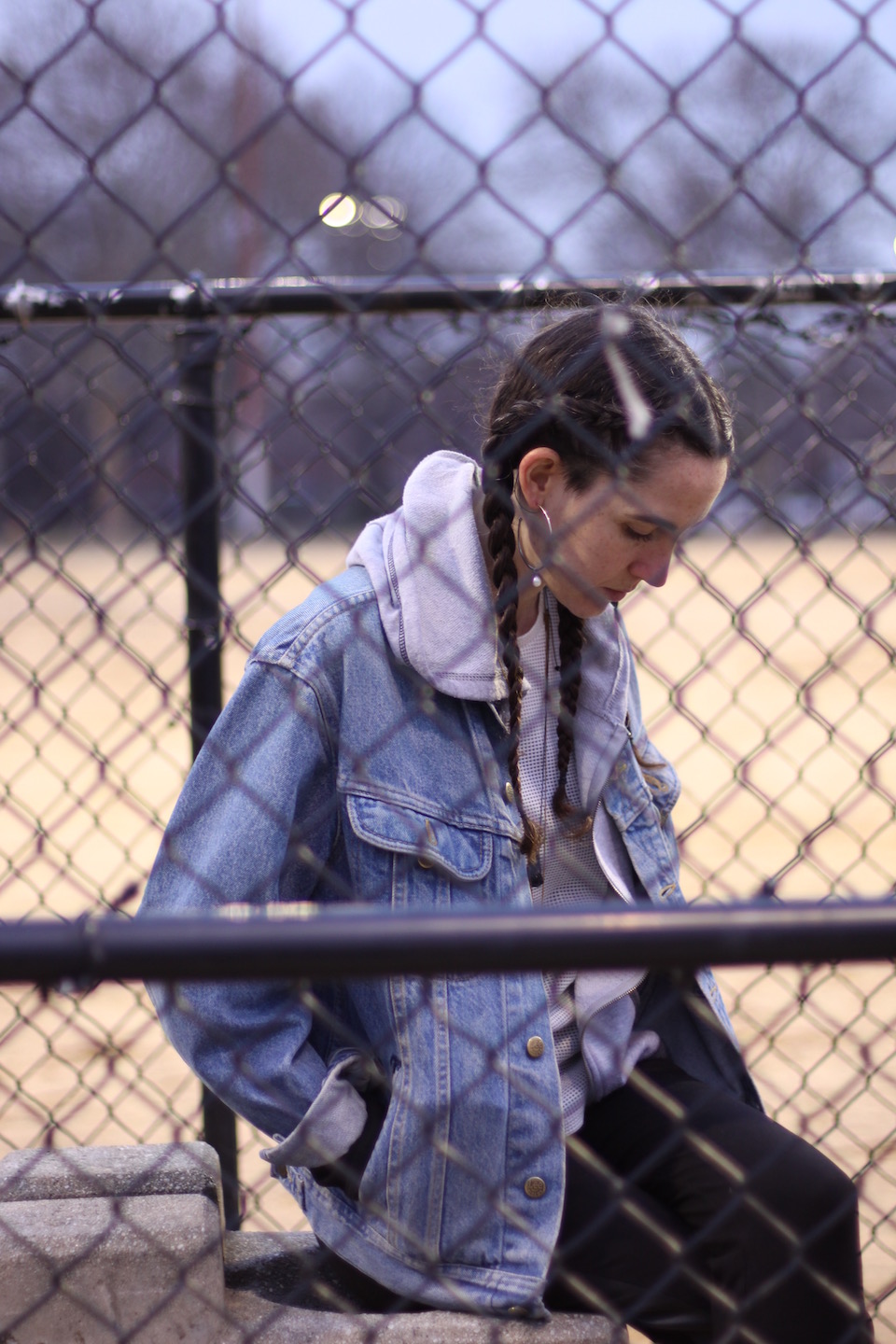
How would you describe the vocabulary you’ve developed as a musician over the years?
Ohal: I think it relies heavily on traditional pop songwriting, but with more noise and electronic music that tries to find a balance between kitsch and disruption, harmony and dissonance. I’m really interested in moments of tension because they offer a certain degree of humor and lightness. It took me a long time to figure out how to balance these things.
Do you feel like a little bit of your classical background will always be there as well, helping you with the structuring of songs?
Ohal: For sure. Definitely.
When did each of you first connect with music on a deeper level, where it suddenly became part of your very being?
Tunde: Oh man, I just can’t remember a time where it wasn’t your shadow or something. I feel like if you grew up in a household where music was always played—like my dad played piano and records all the time—it’s around you before you even know it’s around you. If there’s any length of time where you’re not listening to something beautiful, it starts to fester in your mind, filling your own brain up with songs and sounds no matter how terribly wonderful they are. They’re just a part of your bloodstream. For me, it can be a pain sometimes hearing my own mental chatter of songs. So I hate it; I hate my life.
You hate the voices in your head then?
Tunde: I mean, the voices on my Voice Notes. If someone ever finds this shit after I die, it’s no good for me.
What about you Ohal?
Ohal: I can’t remember a moment where it was like, ‘Hello music, this is me! We should get to know each other.’ I was acquainted with the piano when I was 4, so I remember playing and feeling so deeply connected to it. It felt immediately intelligible to me in the same way you learn the alphabet and then you can just read. It felt very natural; I was just playing the piano. Thinking back about it now, my dad was really obsessed with music. For him, it was the epitome of the human creative effort. Music was constantly playing in our house, very loudly. There were like eight speakers in our living room, playing Gregorian chants or Michael Jackson or Stockhausen. He was enamored with music, but he never played an instrument, so I think he was very excited for me to learn the craft of expressing myself through music. My fondest memories of my father is the joy he’d see in moments where I showed him something I made in music that he really connected to.
So it wasn’t the kind of relationship where your family plopped you in front of a piano at 2 and pushed you towards music? You gravitated towards it on your own?
Ohal: Yeah, but then I became a teenager, and there were more passive hints of ‘this is something you should do for the next four hours.’
Tunde: The passive hint! [Laughs]
Ohal: Yeah, but it was okay.
What’s a record that, looking back now, you really appreciate someone in your family playing in the house at an early age?
Ohal: For me, I think it’d be Fairuz, a Lebanese singer. She presented a lot of Middle Eastern tunings and rhythms that became very important to me because they weren’t present in Western classical music. And they offered a degree of spontaneity that I’m still thinking about today, decades later. I listen to it any time I need to retune my ear. It feels so freeing to know you could have an eight-minute song where the orchestra jams for like four minutes and then the singer starts singing.
Tunde: For me, I guess it was two things. My parents are from Nigeria so when they had parties with their friends, they played King Sunny Adé. But it’s funny because those were always around, and they’re pretty psychedelic, guitar-heavy records. So that was already rock music to me, but it was weird because it was my parents’ music. I have this very strange relationship with that stuff. I was always just like, ‘I don’t know. That’s just what my parents listen to. I like some of it but I don’t know why.’ My dad was also a fairly big Beatles fan. He’d leave the Sgt. Peppers record on, and my brother and I would sit in front of that thing for hours and hours, screaming at the loudest, most distorted songs. I’m glad those two things were in the air when I was a kid. Working backwards from that, trying to imagine how the guy screaming on “Revolution” is the same guy who wants to hold your hand. He’s in black and white here, and a psychedelic hippie there. The idea that you could be so many different things musically was super cool to me as a kid.
Were you more interested as a listener than a musician? Because your background is in visual art right?
Tunde: Absolutely as a listener at that point. My dad and brother played piano, and my sister sings opera. I was the least likely to succeed musically in my entire household. I was always lying on the floor drawing, with my face an inch off the ground. ‘Is that kid dead?’ ‘No, he’s drawing. He’s very still.’
Did they try and get you to play piano and you just weren’t into it?
Tunde: No, I think I was, some would say, an unnecessarily sensitive child. I took a few lessons and felt rejected by my teacher. I felt like I wasn’t good enough. I was very bad with any formal training, but I don’t know; I really like making music, getting a four-track and messing around.
Did you have any tough teachers like that Ohal?
Ohal: Yeah. I feel like at some point I started rebelling against the idea that you have to play music exactly according to what is written on the music sheets. I was like, ‘B-flat sounds much better than B.’ I feel like everyone was pretty supportive. I really enjoyed the rigidity of it for quite some time. Having to adhere to a certain set of rules was joyful. I connected with the severity, like, ‘Yeah, I should be punished if it’s not perfect.’
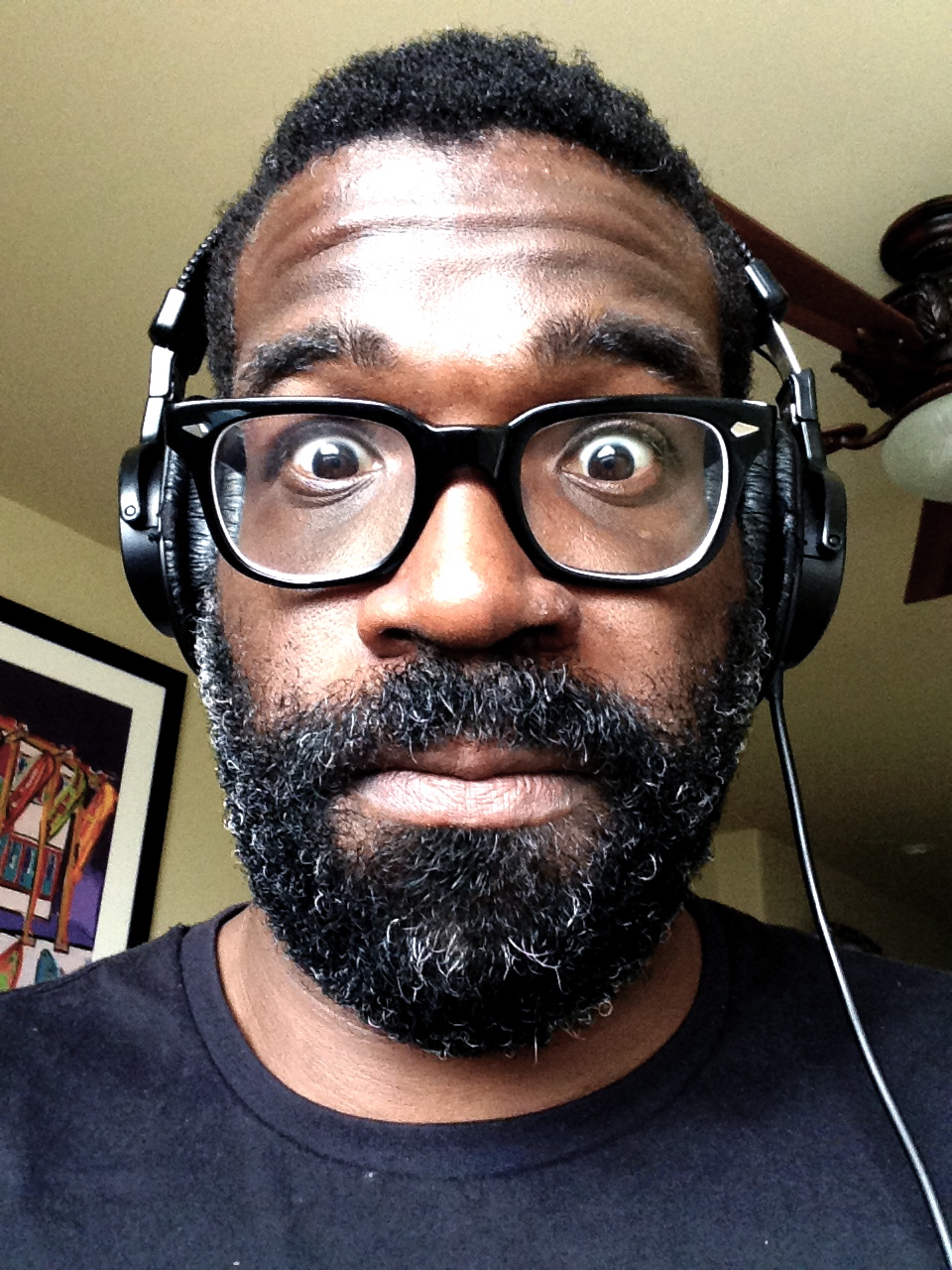
Both of you work with other people a lot, but do you feel like you thrive in isolation?
Tunde: Yeah. You also don’t really know what you’re doing. You’ll know when you can go out of the room, when you can take a break. Outside of that, it’s nobody’s business at all. It’s barely my business.
Ohal: I feel the same way. Being alone for big portions of the day is very important for me. Even if it’s just two hours of staring at the wall; that makes me feel rejuvenated because there are some things I need to address, alone.
And at the same time, it sounds like you two could work in the same room without bothering one another, in the same way a married couple can feel comfortable not saying anything at dinner.
Tunde: Are you talking about when you first generate an idea on your own?
Yeah.
Tunde: Right. So if you’re around someone that understands you’re on your planet: ‘Please don’t come to my planet. We’ll meet at the space station when it’s time to make plans.’ Definitely [laughs].
How would each of you describe the planet you’re on at the moment?
Tunde: Holy shit. Generally, I don’t want to describe the Earth. I just went and played a show and had several conversations about the end of culture. Because we were in Las Vegas. It was really weird; I opened my window and the view was basically nothing—this huge empty parking lot and then the Trump casino. A gold building in an empty desert is very harrowing. That’s the planet I’m on. Emotionally though, I’m doing great. I’m happy.
It does feel like we’re living in a science fiction movie doesn’t it?
Tunde: It’s very present, yeah. Whatever it is, we did it. We made it.
Ohal: We broke everything!
Tunde: Welcome to the future.
Does it feel like it’s both a great and terrible time to live in since it can be inspiring for an artist?
Ohal: I don’t know if I subscribe to the idea that you have to feel pain and misery in order to feel stimulated. I think I’d go crazy if I didn’t make things, regardless of whether life is all strawberry fields and whipped cream mountains.
Tunde: Because even then, you’d find something deeply wrong with the whipped cream mountain…. Although I’m always like, it’s not the Black Plague. Someone made it through that, so we can to. As far as art goes, I think it’s a way for me to stay balanced, because if science is correct—and they’re pretty good at some stuff—all of this is going to just fly into the sun at some point. At the end of it, it’s like, ‘What am I going to do? I have things in here that I want to talk about and express because there’s no responsible way for it to manifest itself in my life outside of art. At the end of it, what else am I going to do? Luckily, the broken filtering of my life and the world has somehow turned into my job.
It also seems like both of you keep your political views and activism separate from your music.
Ohal: For me, they’re so disconnected. I feel socially responsible because I’m alive and everybody should make an effort to end any sort of oppression. But it’s not connected to any creative endeavors for me.
Tunde: I also know that I can be more genuine in my art by being someone who’s concerned about other human beings on planet Earth, but it needs to be separate from my art unless it connects in some way that feels true. I would not want to sing a 45-minute conversation I just had with somebody about gender politics in a bar. I would not do that to anybody.
Ohal: Somebody could make a good song out of that!
Tunde: And I’m not that guy. There’s a lot of Bob Dylans who couldn’t synthesize information and probably shouldn’t have tried to. But there are artists who can definitely pull the times in and dole it out in a poetic, eye-opening way. I’m not that person. I don’t have those skills.
Well you probably don’t want to be that literal either.
Tunde: It’s not like I’m going to wake up tomorrow and say, ‘You know what? I think corporations are fine.’ But you could also be championing something for a few years and then find out it was blood money. Something horrible was at the root of this thing I thought was worthy of me putting into verse and chorus and rhyme.
Ohal: For me personally, it’d feel like a didactic, contrived effort. I wouldn’t even know which road to go down.
We could probably talk about that for a while, so let’s shift gears. Another way your lives have paralleled one another is you both had some experience scoring films. Ohal, you just did a soundtrack right? And Tunde, you did a score about five years ago?
Tunde: Let’s start with yours since it’s awesome and you can actually jam to it.
Ohal: I had made shorter pieces for films before but this was the first time I did an entire feature film. It was less traditional than expected, a very open, collaborative process with the director. It was very inspiring and exhilarating. It’s nice to work with something outside the vaccuum of your own head. With this film, the director and I would send things back and forth nearly every day. I’d send him a melody or something and since he was still filming, he’d send it to the actors before they performed a certain scene to get them in the right state of mind. [Director] Lior [Shamriz] is Berlin-based so he doesn’t speak Korean. And since the movie is in Korean, he had a translator for the script and he didn’t have any guide for the actors other than their intonations throughout the scenes themselves. In that sense, the music was important to the process of filming. It started this nice cycle of feedback between producing visuals and hearing music for about five or six months.
It sounds like you were able to feed off of each other instead of the way these things usually work—where you handed the visuals and have to work off that.
Ohal: Yeah, that was very exciting for me.
Was your experience more traditional?
Tunde: Mine was more traditional. It was still fun; it wasn’t awful. It was for this movie called The Lottery, a Madeleine Sackler documentary about four kids in a lottery to be accepted to a charter school in Harlem. So it followed those kids and put some light on the controversy surrounding education reform. It was funny to be asked. I think Madeleine came to [former TV on the Radio bassist] Gerard [Smith] first. He was a really great composer and had done a lot of arrangements that had a cinematic, soundtrack-y feel to them. It was kinda great watching this educational reform film with the goal of setting an emotional framework for these real life stories, of sitting there and trying not to make something that’s not cloying or cheesy. It was a great challenge to start thinking like that because it’s the opposite of how I think when I’m making music. I usually put the binoculars on, look for the farthest unicorn, and try to imagine what that might be going through. It’s also good to be working with somebody who actually gives you notes. Depending on where you are that day, it can be an oddly humbling thing. You’re like, ‘But no! It’s so triumphant and uplifting. Oh yeah; it’s your movie.’
So you got a note that said your music was too positive?
Tunde: No, it’d just be things about changing different parts. It was never anything unwarranted. Which is a credit to the filmmakers; there’s a nice way to give someone a note that implies collaboration, and there’s a way to give someone a note that implies you don’t know what you’re doing, keep trying. I’d love to do [a film score] again. But I think experimental stuff or narrative fiction would be more fun than a documentary. There’s only so many violins you can use in a soundtrack before Philip Glass comes knocking on your door, asking for his kickbacks. ‘Everyone owes me! The Avengers owe me!’
Do you take criticism better as an actor or musician? Or are they both awful?
Tunde: No, notes are good. When you’re involved on someone else’s project, you hope that person has your best interests in mind as connected to their best interests. So if someone gives you a note, I’m always willing to try things because at the end of the day, I think they’re saying, ‘I don’t want either of us to look bad. Let’s try this.’ Of course, they could also be saying, ‘I want to look great, and the only way to do that is to make you look like a fool.’ You have to suss it out. It’s healthy in a collaboration to not have someone that’s always saying ‘that’s great’. There is a time when too many notes leads to ‘you can do that yourself’, though.
So to bring things back to this record, what’s an example of a note you passed to Ohal?
Tunde: On “Wintertime,” it’s basically acapella, but there was a stronger synth line on it before. I think you’d left it out, then played it for me with the synth line in, and I was on Team Yes to do it without it.
Ohal: I think there was another counterpoint synth thing happening, but we listened to the whole album as one big piece with the different songs relating to each other in parts.
Then with “All Mine,” I was thinking about where to position the vocals so they’d be a lot more submerged, partially because I wasn’t used to hearing my voice so loud. The things I’d recorded before were drenched in a lot of effects. But I became fond of putting my voice up front.
Do you remember when you first felt comfortable with your own voice Tunde?
Tunde: TV on the Radio stuff went from my four-track—just my voice, pretty much—to electronics, guitars, and then it was an immediate ‘oh yeah, I’m not just making music with my friends. My voice is in the middle of this thing and it’s gotta be pushed up front.’ It took me years to be comfortable with that. You’re not supposed to like the sound of your own voice. It’s disorienting when you first start hearing yourself played back singing. We were probably two or three records in before I became comfortable with how I sound, with what I’m working with. It’s fine—not too embarrassing. No one’s throwing shit at me.
What’s one of your favorite songs by the other person—one you almost wish you’d written?
Ohal: There’s so many! I have to choose one?
Yeah, but it doesn’t have to necessarily be the best.
Tunde: When you played “All Mine,” it was really one of those things where you’re like, ‘Oh man, this is one of my favorite songs.’ And it’s nice when it’s underlined by the fact that it’s made by your closest friend, where you’re like, ‘Fuck yeah, you wrote this jam!’ I really love that song. It’s like a chariot ride. Sweeping is not the word I’m looking for. It’s just a very majestic, genuine melancholy and longing. It turns my heart into a citrus fruit.
You should put that on a sticker for the album.
Ohal: Maybe for the remastered vinyl.
Tunde: But then people’ll be like, ‘I don’t know if I want that. I don’t want my heart to turn into a grapefruit.’
https://youtu.be/xVaFOgrk5Po
Your turn now.
Ohal: Which album is “Family Tree” on?
Tunde:Dear Science. Really?
Ohal: Yeah! I also really love the noise music that preexisted Tv on the Radio, a lot. So basically everything Tunde’s ever done, and then “Family Tree.” The lyrical content is amazing. He’s one of my favorite lyricists in the world.
How would you describe that noisier stuff since most people haven’t heard it?
Ohal: It’s great—really beautiful, weaved textures and the sounds are really captivating to me.
Tunde: It’s weird, because I’ve played so many things for you over 15 years.
There’s a lot of stuff you’ve done that only she has heard then?
Tunde: Absolutely. Definitely.
Do you have a memory from earlier on in your relationship that reflects why you became so close as friends?
Ohal: The best way I can describe it is what happens when you see someone and can just tell you’re going to be really good friends. Then other aspects of your relationship and interests materialize in a way that takes things deeper and deeper.
Tunde: It’s rare to bump into somebody like that. You feel like they look so familiar and you have to trust those feelings as a creative person. It’s the closest thing I have to a sort of spirituality. It’s weird; you grow up with somebody. Like I’ve known you for almost 20 years, close to half of my life. If you’re lucky, you’re lives change in tandem.
We’ve talked a lot about music, but are there any films or books you bonded over early on?
Ohal: There’s so many things. That’s a huge component of our friendship—talking about books and movies for hours. I feel like we both really love [director Rainer Werner] Fassbinder in terms of films. And I have stacks of CDs, of compilations we’d make for each other—endless emails of ‘listen to this’, ‘watch this’.
Tunde: We try to have healthy arguments about comic books [laughs].
What’s one of the most heated comic book conversations you’ve had?
Tunde: It was recent! It was X-Men. I’d given up on them and you for some reason are in support. But back in my day, X-Men were X-Men.
Why are you still into the franchise?
Ohal: I like [X-Men: Apocalypse] because Days of the Future Past was so good and I wanted more of that. I don’t think it’s an amazing film. There’s an over-the-top part that should have been omitted dialogue wise, but I don’t think there’ll ever be an X-Men movie I don’t like. Have you seen it?
I haven’t.
Ohal: Well I don’t want to ruin it for you but I think a lot about the non-linearity of time, so I’m drawn to plots with time machines. That’s what X-Men is about now.
Tunde: About going back and trying to save themselves.
Ohal: Right, and even though there’s shitty dialogue between Michael Fassbender and his daughter about Bambi, it’s still seductive to me: time, immutable but everywhere.
What’s your side of the X-Men story then?
Tunde: I feel like I formed my opinion about the X-Men when I was 13 and by the time I was 16, I was just a snob, a dirty, nerdy comic book snob.
You haven’t read the Grant Morrison X-Men right?
Tunde: I haven’t. If there was a button you could push on my neck where I spouted out way too much comic book knowledge and history, I’d have to turn it off after a point so I could breathe. But yeah, I wish the X-Men the best in their endeavors. I just don’t like seeing Michael Fassbender’s talents being abused in service of a childish storyline. I’m totally kidding. I haven’t seen the last couple.
Ohal’s new LPs are now available through Styles Upon Styles. Tunde Adebimpe’s latest project is Nevermen, a dizzying trio featuring Mike Patton and Doseone.
